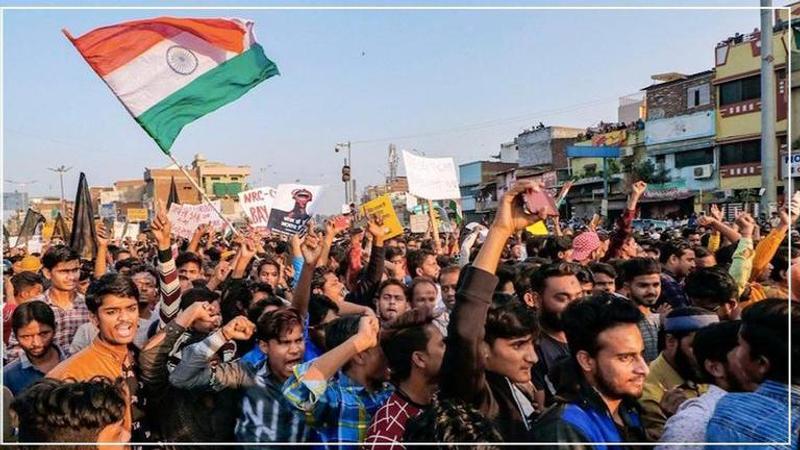Published 23:17 IST, January 1st 2020
After Karnataka & UP, Vadodara police to recover damages from anti-CAA rioters
Following the example of UP and Karnataka where miscreants are being asked to pay for damaging public property, the Vadodara police has decided to follow suit.

Following the example of Uttar Pradesh and Karnataka where the miscreants are being asked to pay for damaging public property, the police in Gujarat has decided to follow suit. On Wednesday, Vadodara Police Commissioner Anupam Singh Gehlot stated that the people who damaged police vehicles during the protest against the Citizenship Amendment Act on December 20 in the Hathikhana area would have to pay compensation. Revealing that the police had ascertained the quantum of damage, he observed that a court would be formally approached in this regard.
The anti-CAA protests in Vadodara
During the anti-CAA protests in Vadodara, few protesters indulged in stone-pelting injuring one police personnel and damaged multiple police vehicles. In the process, the police lobbed teargas shells and fired two rounds in the air to control the mob. A total of 40 people have been arrested in connection with the violence, including the four main accused persons.
The precedent set by Surat police
The Supreme Court’s 2018 order regarding recovery of compensation for the damage caused due to public and private properties during an incident of violence. The Vadodara Police Commissioner recalled that the Surat police had recovered compensation from the rioters taking recourse to this order. He added that this would be the first instance of the Vadodara police moving a court to seek compensation from the rioters.
What is the CAA?
The CAA seeks to provide citizenship to the minority communities namely Hindus, Sikhs, Buddhists, Jains, Parsis and Christians from Afghanistan, Bangladesh and Pakistan. This will be applicable to the members of these communities having arrived in India on or before December 31, 2014. Moreover, they will not be considered as illegal migrants. Additionally, the mandatory residence period for naturalised citizenship for these communities has been reduced to 5 years. The opposition contends that the Act discriminates on the basis of religion, which might go against Article 14, which guarantees the right to equality.
(With PTI inputs)
Updated 23:17 IST, January 1st 2020




